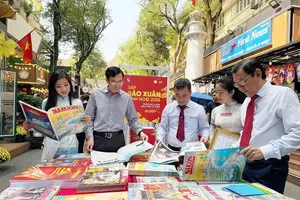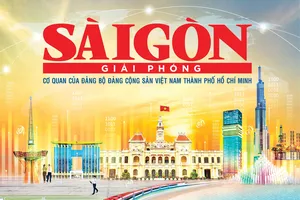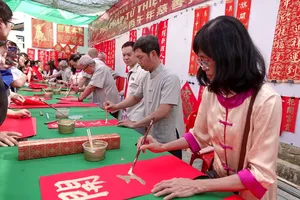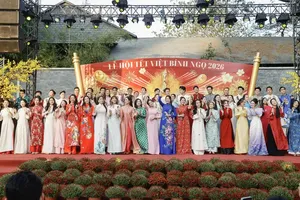
In Panel 1 themed ‘Opportunities and Challenges of Vietnamese Animation and VFX’, a part of the conference ‘Vietnamese Animation and VFX: Global Market Opportunity’, the hot topic of terrible visual effects in Vietnamese animation was raised. Obviously, there are many professional Vietnamese experts in the field who have contributed to Hollywood blockbusters, yet the VFX quality of Vietnamese films are still not as expected.
Thierry Nguyen, Co-founder of Badclay Studio cum CEO of AIOI Studios, shared that more than 60 percent of VFX and animation studios in Vietnam are working for foreign clients. All of them are yearning to help the cinema industry in their own country. Agreeing with that, Ming Pan, Co-founder cum CEO of Mixel Media, said that after working Marvel studios, his team has gained valuable experience and wishes to work with young Vietnamese people to prove that Vietnam does have the ability to create wonderful VFX.
Explaining the reason why the VFX part of Vietnamese films are still lowly appreciated, Founder/CEO Le Anh Dy of blankNegatives and Chairman of VAVA stated that the available budget normally decides the final result. Even an expert VFX team cannot create a high-quality product without sufficient finance.
This leads to a more serious problem in the Vietnamese cinema – film capital and cinema fund. CEO Hang Trinh of Skyline Media shared that Vietnamese filmmakers are relying too much on investors and distributors while the capital from the Government is rather low.
Founder/CEO of Muse Films and VMP Capital Will Vu informed that at the moment, the common shares for capital attraction are 45 percent from film owners, 15 percent from individually-operated investment companies, 10 percent from the theater, and 30 percent from external partneres.
Liza Dino, CEO of the Quezon City Film Commission and Qcinema Project Market (the Philippines), stressed that the cinema industry always need a consistent support from the government to exist. She added that the share of film owner should by around 20 percent to not focus too much on commercial success of a product.
French Consul General in HCMC Emmanuelle Pavillon-Grosser mentioned the experience of her country for the existence and sustainable development of the national cinema industry. France has continuously provided financial support to cinema activities in the country and to maintain renowned brand names like Cannes Film Festival. Calling for the participation of globally famous films in a prestigious film festival means a precious chance to promote the cinema market as a major part of the national economy.
Experts in the field have voiced that one of the key solutions to address current problems in the Vietnamese cinema is an establishment of a close network between national and international filmmakers via meaningful events like HIFF. This helps experience exchanges and offers more opportunities while minimizing potential risks.
Kim Donghyun from the Korean Film Council (KOFIC) commented that Vietnam is now boosting the inclusion of folk culture in its films, which is also the choice of the Korean cinema to reach its success. It now has much experience to share so that Vietnam can avoid unnecessary mistakes.
“In addition, Vietnamese filmmakers should be more confident of their quick and even development. In Vietnam now, there are great advantages from innovative film actors and directors with great English language skill to better share and discuss their ideas with great foreign directors from Hollywood”, said Anderson Le, HIFF Director of Film Selection.
Former leader Raymond Phathanavirangoon of Southeast Asia Finction Film Lab (SEAFIC) propose that Vietnam is showing signs of focusing on one-style, commercial films with sentimental or sad scripts. This used to be a mistake of the Thai cinema, leading to the monotony of cinema and discouraging domestic viewers due to boredom.
























